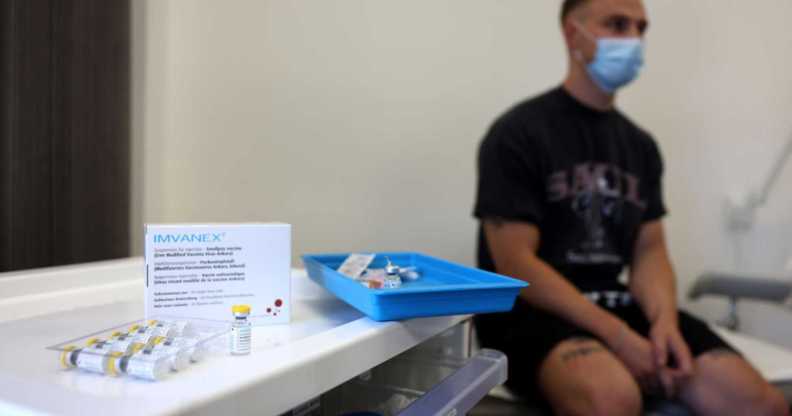UK to end mpox vaccination rollout despite warning from World Health Organisation

The UK government has confirmed the ending of the mpox vaccination programme. (Hollie Adams/Getty Images)
The World Health Organisation (WHO) has announced that it still considers mpox a public health emergency of international concern, just days after the UK confirmed it would wind down its vaccination campaign against the virus.
Men who have sex with men have been disproportionately affected in the mpox (formerly known as monkeypox) outbreak that began in May 2022.
In an update about the virus on 24 March, Dr Rosamund Lewis, from the WHO Health Emergencies Programme, said this was still the case.
Almost 90,000 cases and 97 deaths across more than 110 countries have been recorded since May last year.
“It is very important for people who may be at risk, particularly men who have sex with men, to continue to be mindful of how to reduce their risk by reducing the number of sexual partners, for example, and being aware when they are attending events where sexual activity may occur,” Lewis said.
She flagged that the risk of the virus spreading could rise in the northern hemisphere as gatherings and activities increase for spring and summer, “even as the outbreak is slowing down worldwide”.
Although the WHO still deems mpox an international public health emergency, the UK has moved towards ending its mpox vaccination campaign.
On 22 March, the government announced that a “targeted vaccine programme is no longer needed”, although first dose vaccinations will still be available through to 16 June and second doses until the end of July.
Since the programme began, 67,898 people have received their first dose of the vaccine and 26,619 people their second dose.
Only six cases of mpox were recorded in the UK between 1 January and 27 February 2023, compared to a high of 350 per week in July 2022.
In its announcement, the UK Health Security Agency (UKHSA) said vaccination “played a crucial role” in reducing the number of cases, but urged eligible people to still get vaccinated before the end of the campaign.
The UKHSA confirmed that it would continue to closely monitor mpox case numbers and “will retain the ability to stand up the vaccination programme if the risk of infection rises significantly”.
The UK isn’t the first country to wind down its mpox vaccination programme.
The United States stopped classifying mpox as a public health emergency at the end of January, and Ireland closed its vaccination programme at the end of February due to plummeting case numbers.
The WHO’s Dr Rosamund Lewis said that vital new information has come to light since case numbers spiked in May 2022.
“While the outbreak appeared to begin primarily in Caucasian men in Europe and North America and has spread around the world, we are now also learning that it is reaching more marginalised and ethnic and racial groups such as Black and Latino men who have a much higher rate of acquiring mpox in their communities and a much lower access to prevention measures and face greater stigma and discrimination.”
Citing the downward global trend in case numbers, Lewis pointed out that men who have sex with men “have taken charge of their own health” to reduce risk and the spread of the virus.
How did this story make you feel?

